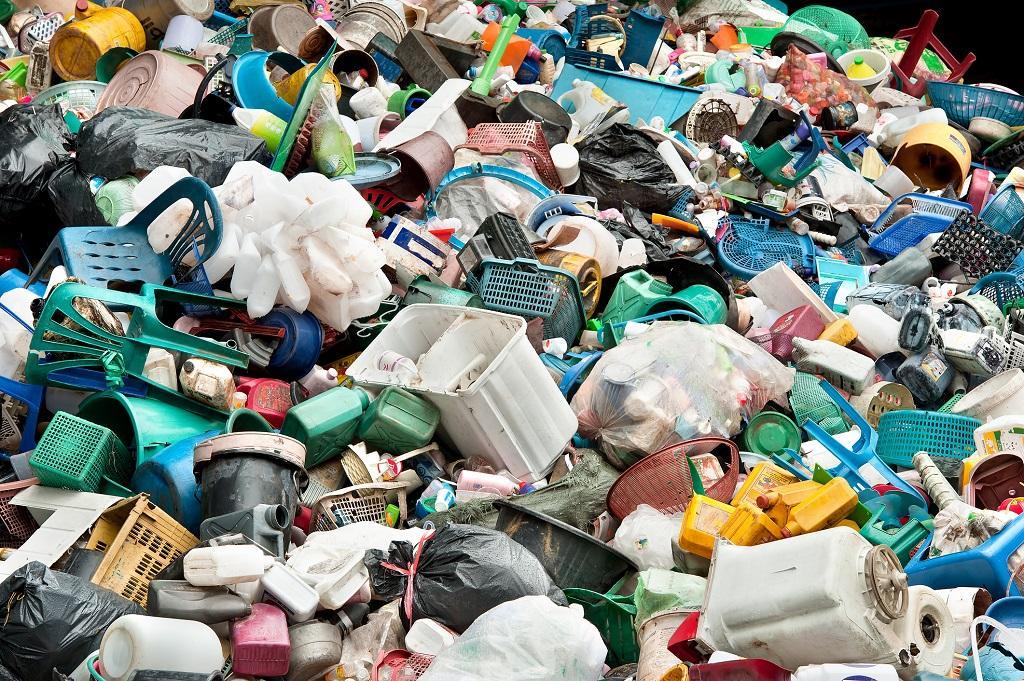

Only 3% municipalities have worked or plan to work with companies and industries that use or produce plastic waste



In Nepal, urban areas generate above 350 tonnes of plastic waste every day, according to a study conducted by United Nations Development Programme (UNDP) Accelerator Lab Nepal between November and December 2020. The study tried to explore the collaboration of urban municipalities with other stakeholders to manage waste.
The result showed insubstantial collaboration with stakeholders. Only about 4 per cent municipalities reported that they were working or potentially can work with agencies to manage plastic waste. Only about 3 per cent of municipalities have worked or have plans of working with companies/industries that use/produce plastic waste to manage plastic waste, showed the report released on February 17, 2021.
The study commissioned by UNDP was conducted by Smart Solutions and Bikash Udhyami, which is a data analytics, information and digital communications company that empower residents of Nepal with data, information and technology.
The study has been carried out at two levels: Local government, particularly focusing on urban municipalities, and private sector, particularly the companies generating plastic products.
The study focuses on practices of plastic waste management. Data has been collected from 285 out of targeted 293 urban municipalities. Online surveys and key informant interviews with the relevant officers of the municipalities were executed to collect the information required for the study.
Municipal solid waste management
The government of Nepal enforced the Solid Waste Management Act , 2011 and Solid Waste Management Rules, 2013 to maintain a clean and healthy environment by reducing the adverse effects of solid waste.
The act mandates local bodies to take the necessary steps to promote reduce, reuse and recycle (3R), including segregation of municipal solid waste at source. It also provides for the involvement of the private sector, community-based organisations (CBOs) and non-government organisations (NGOs) in SWM through competitive bidding.
But the survey showed that 150 urban municipalities (52 per cent) have plans/policies to tackle the overall waste problem. Similarly, 121 municipalities (42 per cent) reported that they have manual/directives in line with their plan/policy to manage.
Their policy was found to be primarily focused on the collection and segregation (44.7 per cent) of municipal waste. Only 17 per cent municipalities reported their waste was managed by the private sector.
Private sector
About 53 per cent of companies reported that they buy plastic products, either for raw materials or as final products, from domestic third parties. Almost 38 per cent companies purchase from foreign third parties.
The survey result revealed that 70 per cent private companies appeared to be unwilling to use alternatives of plastic in their needed operation. The survey reported that most of the plastic producer/user companies did not place the CSR mechanism in their operation.
Only 15 out of 53 companies (28 per cent) have CSR mechanisms in operation. The study showed that only 8 per cent plastic user/producer companies have allocated their CSR fund explicitly for the management of plastic waste.
The study has made some recommendations to manage plastic waste in the urban municipalities of Nepal:
We are a voice to you; you have been a support to us. Together we build journalism that is independent, credible and fearless. You can further help us by making a donation. This will mean a lot for our ability to bring you news, perspectives and analysis from the ground so that we can make change together.

Comments are moderated and will be published only after the site moderator’s approval. Please use a genuine email ID and provide your name. Selected comments may also be used in the ‘Letters’ section of the Down To Earth print edition.